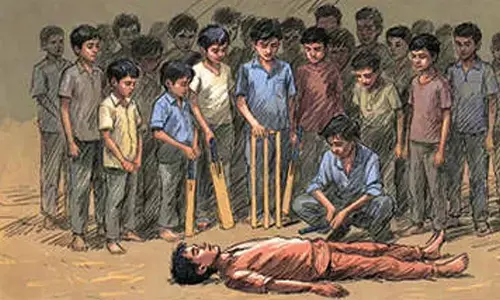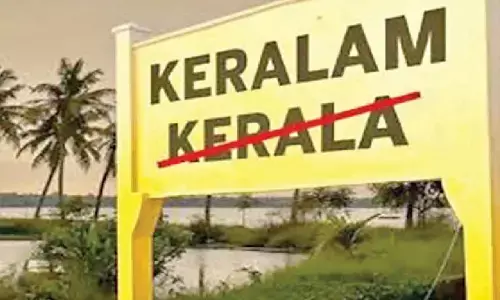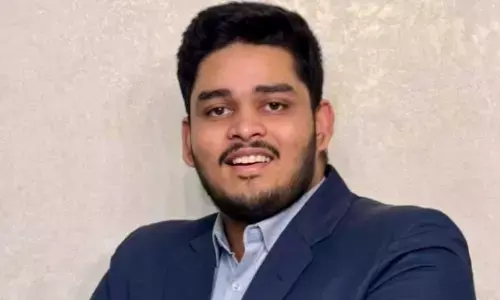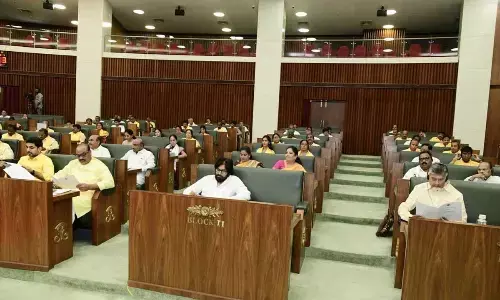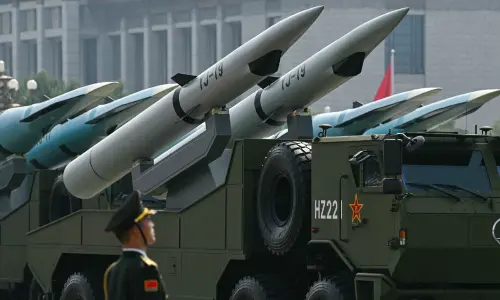Reforming the Civil Services in India: Rhetoric or Reality?

Reforming the Civil Services in India: Rhetoric or Reality? Excellence in Public Service has been a long-cherished goal of governance in India.
 Excellence in Public Service has been a long-cherished goal of governance in India. On every Civil Services Day (April, 21), civil servants are given the “Prime Ministers Award for Excellence in Public Administration”, for their commitment to serve the citizens. It was initiated as part of the civil service reforms in the year 2006. On this occasion, one is interested to know whether such attempts have reformed the civil service and improved the public service delivery.
Excellence in Public Service has been a long-cherished goal of governance in India. On every Civil Services Day (April, 21), civil servants are given the “Prime Ministers Award for Excellence in Public Administration”, for their commitment to serve the citizens. It was initiated as part of the civil service reforms in the year 2006. On this occasion, one is interested to know whether such attempts have reformed the civil service and improved the public service delivery.
High Growth and Low Trust in Governance
Globally, the image of Indian civil servants has been shoddy. Hong Kong based organization, Political and Economic Risk Consultancy Ltd, in its study in 2012, rated Indian bureaucrats high on the index of red tape among other bureaucracies of Asian countries (9.21 points out of 10). It revealed that working with the civil servants in India is a slow and painful process. Besides, Hindustan Times-MaRS Governance Survey reveals that India is poor vis-à-vis other countries in providing quality public services and pursuing welfare of the people.
Despite high economic growth rate in the last decade (at an average 7 percent per annum) public service delivery in India is dismal. A few facts are startling. About 200 millions of Indians still do not have access to electricity. India does not do better than Bangladesh in improving the livings standards of its citizens. In terms of malnourishment of children, it is worse than that of sub-Saharan Africa! This is certainly an ‘Uncertain glory of India’ (as Jean Dreze and Amartya Sen put it). Deterioration in the quality of services erodes the trust of citizens in their government. A recent survey reveals that the percent of Indian citizens who trust their government has plunged to 55 percent in 2012 from 82 percent in 2007 (reduced by 27 percent).
Incrementalist Approach
The idea of reforming civil service is not new in India. Since post independence, nearly 60 committees have been constituted to reform administration and around 90 reports with hundreds of recommendations; have been submitted to the successive governments. Yet, the impact of these reforms on public service delivery is incremental. Causes for this conundrum have been aptyly quoted by T.S.R. Subramanian, a senior civil servant, in his recent book entitled: India at Turning Point: The Road to Good Governance (2014), that the Indian administration is still grappling with: (a) corruption within the administration, (b) a spoils system, that has meant an irresolute system of tenure, transfers and promotions, (c) political interference and pressure on civil servants, and (d) the non-implementation of consistently recommended reforms for institutional change.
Civil services do not utilize the talent, skill and experience available from varying fields such as academia, research and private sector. Indian aviation industry is a case in point. The generalist civil servants have been reported to be lacking specialised knowledge in managing the aviation sector, resulting in the mismanagement of the Indian Airlines. Lack of ‘fresh perspective’ and dearth of ‘expertise’ and absence of competition encourage the civil servants to be complacent and sloppy. It calls for introducing ‘specialists’ in managing the public sector, as suggested by the Second Administrative Reforms Commission.
Ten years of time span is sufficient to see changes in the administrative system. The Congress-led UPA –I and UPA-II missed an opportunity to reform the civil services and make the latter as ‘change agents’. Mired in a number of corruption related controversies (allegedly around 20 in number), UPA-II has put the agenda of reforms to hibernation. Policy paralysis further worsened the implementation of civil service reforms. During its tenure, the UPA-II has failed to get The Right of Citizens for Time Bound Delivery of Goods and Services and Redressal of their Grievances Bill, 2011, passed in the parliament. Had this Bill been passed, an effective time-bound grievance redressal system could have been in place by now; and the officials who are responsible for their failure in service delivery could have been punished. The UPA-II was able to get 165 Bills in the parliament, making it one of least deliberative full-term parliament in the history of India!
Clearing the Logjam
This year’s Civil Service Day celebrations coincide with the ongoing sixteenth Lok Sabha Elections. These election results indicate the verdict of the people about performance of the UPA-II. A common denominator for measuring the government’s performance is improvement in service delivery. Realising this, the Congress party in its Manifesto for 2014 claims its success in creating the Lokpal and Lokayukta Act 2013, and promises the passing of further pending Bills. The BJP too in its Manifesto mentions about civil service reforms, notably opening up government to draw expertise from the industry, academia and society. Enough is enough! It took nearly forty five years to get the Lokpal Bill passed in the Indian parliament. Many reforms have been on menu, but few have been served. India is growing impatient with the current policy logjam. Acting symbolically and bringing incremental changes can’t help in the long run. India deserves long term measures-‘reengineering’ the civil service and improvement in service delivery!
Next Story


